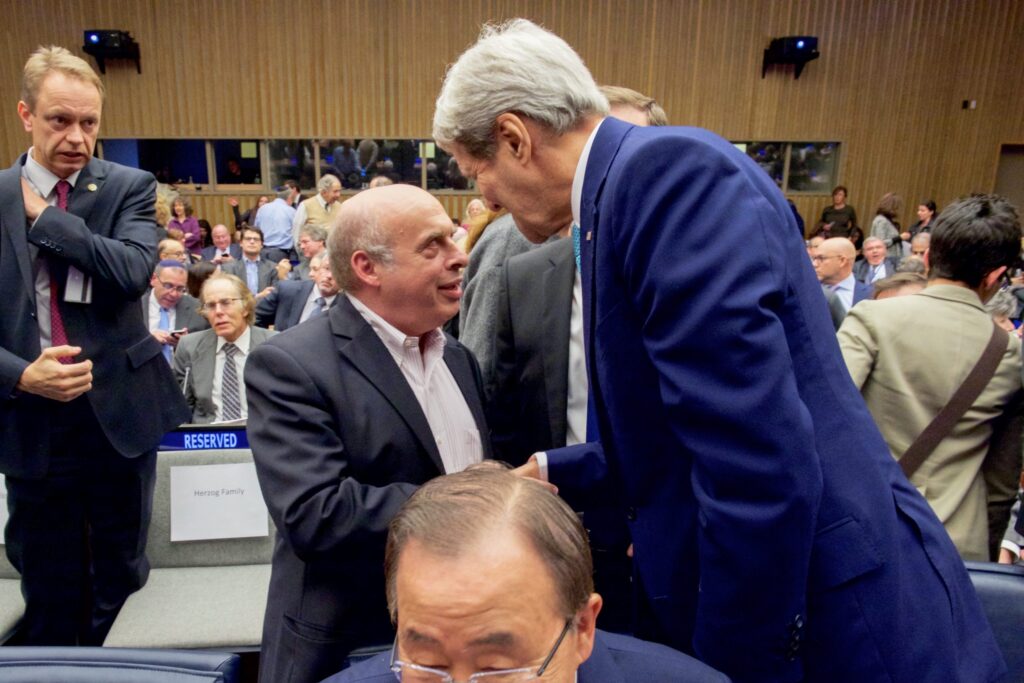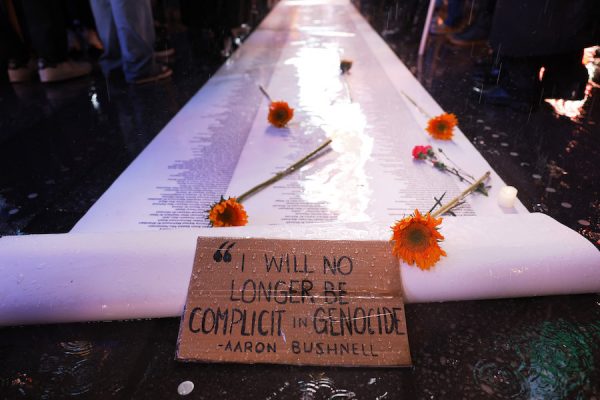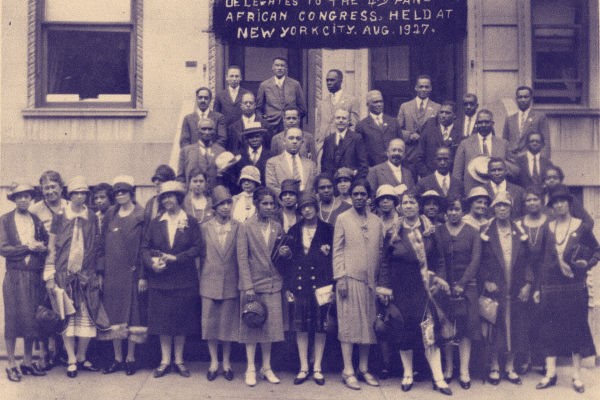Natan Sharansky is a human-rights hero. Arrested by the Soviets in 1977 on charges of high treason, he was declared a prisoner of conscience by Amnesty International and soon became the apotheosis of a “refusenik,” the name given to Jews not permitted to emigrate from the Soviet Union. Along with Andrei Sakharov, Sharansky embodied the courageous dissident, uncompromising in the face of brute repression.
That idealism cost him nine years in a KGB prison, until in February 1986, thanks to the persistence of his wife Avital and intervention by Ronald Reagan, he became the first political prisoner that Mikhail Gorbachev freed—a story here counted in his 1988 memoir Fear No Evil. The night of his release an exuberant crowd welcomed him at the Western Wall in Jerusalem.Over the next few years he would enter Israeli politics, form a party, be elected to the Knesset, and assume various government portfolios, including minister for Jerusalem and diaspora affairs, a position from which he recently resigned. If Fear No Evil was Sharansky’s personal testament, his new work, The Case for Democracy: The Power of Freedom to Overcome Tyranny and Terror, is his political testament, the distillation of wisdom gleaned from years of suffering and perseverance.
It has reportedly found readers in the highest of places. George W. Bush summoned Sharansky to the White House in November 2004 to tell him how much he liked the book. Such appreciation is hardly surprising since Sharansky heaps praise on the president and his cohorts, commending Bush for his“determination” and calling Vice President Dick Cheney “a very thoughtful and intelligent man.” “I felt like his book justconfirmed what I believe,” Bush told The New York Times, and Sharansky notes that at one point the president’s views on the Middle East so perfectly mirrored his own that a reporter asked if he was Mr. Bush’s speechwriter.
The ideas that join these two at the ideological hip are simple and straightforward. As TheCase for Democracy has it, freedom is the universal desire of humankind. The world is divided between free societies and what Sharansky calls “fear societies.” Fear societies are inherently belligerent because they must create external enemies in order to guarantee the loyalty and quiescence of the masses. It is therefore incumbent upon free societies, if we are to live in a world at peace, unimperilled by terrorism, to transform fear societies into free ones. Those who would compromise in the face of this great callingare not only foolish but also lack “moral clarity.”
Bush’s second inaugural address tracks these ideas closely: “As long as whole regions of the world simmer in resentment and tyranny . . .violence will gather.” “There is only one force of history that can . . . expose the pretensions of tyrants . . . and that is the force of human freedom.” “The best hope for peace in our world is the expansion of freedom in all the world.” “We will persistently clarify the choice before every ruler and every nation: the moral choice between oppression, which is always wrong, and freedom, which is eternally right.”
The Sharansky-Bush hypothesis—that spreading freedom will usher in an age of peace—has stymied the human-rights movement. Human-rights proponents have been saying for years that true peace and security are predicated upon respect for fundamental human freedoms. Had any president other than George Bush promised in his inaugural address to tie U.S. policy to the pursuit of “freedom’s cause” and uttered words like “America will not pretend that jailed dissidents prefer their chains or that women welcome humiliation and servitude,” our hands would ache from applause.
Moreover, Sharansky’s convictions that no culture ought to be regarded as inherently unreceptive to freedom; that dictatorships are far more unstable than they appear; that the United States ought to use its political and economic leverage far more consistently to promote improvements in human rights; and that to do so will in the long run be in America’s strategic interests—all these are music to a human-rights advocate’s ears. How appropriate that the publisher of Sharansky’s book is Public Affairs, a house headed by Peter Osnos, a former official of Human Rights Watch, who pays tribute to three great rights advocates, I.F. Stone, Ben Bradlee and Robert Bernstein, in a publisher’s noteat the back.
Bush and Sharansky have boiled down human rights down to their bare essentials: tyranny is bad, freedom isgood, and good people ought to stop bad people from doing evil whenever they can. Why not embrace that message? It’s true that President Bush seems to be a recent convert to the human-rights gospel, but the same certainly cannot be said for Sharansky. Why, then, is his message more than a tad discomfiting? Partly because such Manichaeism is all too familiar and partly because, familiar though it be, it is impossible to defend.
Moral outrage is the stock in trade of the human-rights movement. Without easily identified bogeymen and the brave knights like Sharansky who stare them down, human-rights organizations would lack sympathy,supporters, and sustenance. Kim Jong Il, Robert Mugabe, the Burmesegenerals—all are just as essential as Nelson Mandela, Shirin Ebadi,and Aung Sang Suu Kyi. We human-rights advocates live part of ourlives in a black-and-white universe.
Individuals like Sharansky, who have endured some of the worst the world can throw at them, areoften compelled to see that world in stark terms in order to survive. And we who cheer them on are sorely tempted, even eager, to embracethat starkness. It makes our job so much easier. It makes our benevolence so much more certain.
There is just one problem: to seethe world in such dogmatic terms is to make of it a cartoon, when weknow in fact that life is far more complicated. Is it better to putup with Pervez Musharraf’s undemocratic rule in Pakistan or to risknuclear weapons falling into the hands of extremists? When doeconomic sanctions generate diminishing returns? Under whatcircumstances is military intervention for humanitarian purposesjustified? A rigid dualism is fine for fundraising but dangerous forpolicymaking. And to see human-rights doctrine shorn of nuance,reduced to its most homely elements, and then prefigured as grist fora theory by which to transform the world—that is breathtaking andalso, well, embarrassing. Is this really what human rights comes downto?
* * *
Consider, then, Sharansky’s (and, by implication,Bush’s) theses.
“All peoples desire to be free.” Thisis the premise upon which Sharansky’s world view is based. He iseloquent in his contention that Arabs are just as receptive to theattraction of freedom as anyone else and heartwarming in his call forgreater support for Arab dissidents working to promote democracy. Butat bottom his assertion about the inherent human desire for freedomis a theological one, hardly subject to testing.
What is far lessspeculative, however, are the consequences of introducing freedom intoa society that is unprepared to sustain it. Sharansky acknowledgesthat in some societies freedom may take a long time to take hold; heknows that free elections alone, absent a vital civil society, arenot enough to guarantee the ultimate triumph of democracy. But he isfar too dismissive of the many forces—religious, cultural,political, and even psychological, as Erich Fromm made clear in his1941 classic Escape from Freedom—that may coalesce to turn back thedemocratic impulse.
Of Germany in 1933 Sharanskysays,
Of course, free elections can bring nondemocrats topower . . . But what followed the Nazi ascension to power does notprove that democracy is dangerous. It proves that democracy must always be protected. For it was not a democratic election that made Germany a threat to the world but rather the destruction of Germany’s free society and the eventual suspension of its democracy.
And yet if “all peoples desire to be free,”why did Germans acquiesce in the destruction of their free society?One need not accept Daniel Jonah Goldhagen’s controversial theoriesabout German anti-Semitism to believe that a combination ofnationalism, scapegoating, ressentiment, and insecurity may sometimesconspire to make authoritarianism more attractive thanfreedom.
This is especially true when basic human needs forfood, shelter, and safety are not met. “A society is free,”Sharansky says, “if people have a right to express their viewswithout fear of arrest, imprisonment or physical harm.” But whatgood does such free expression do if one dies of starvation on theway to the forum? And while a government may well tolerate diverseopinions, if it is too weak to protect you from those who do notshare your views, your “freedom” will be all too ephemeral athing. Under either circumstance, the presumably inherent human“desire to be free” may easily be trumped by the desire to stayalive, and if a repressive government appears more likely to keep youso, so be it. By limiting his understanding of what makes a societyfree to a narrow band of political rights (freedom of speech, of press, of religion), Sharansky ignores those economic and socialrights that sustain the very kind of society he is so eager toperpetuate.
“The formula I have proposed divides the world intotwo categories, free and fear societies, with nothing in between.”In this zero-sum assertion we see the imprint of Sharansky’sexperience with the KGB at its most indelible. If the world wereindeed this simple, diplomacy would be taught as science, not as art.But even the conservative Freedom House ranks countries “Free,”“Not Free” and “Partly Free.” The writer Fareed Zakaria,hardly a maven of liberalism, has been widely acclaimed for hisconcept of “illiberal democracies,” that is, regimes that come topower through democratic elections but then institute variousrestrictions on rights and freedoms.
Sharansky acknowledges thatnot all “free” societies are “just,” though he contends thateven unjust societies can “cross the threshold of freedom.” Butcan justice and freedom really be so readily severed? Sharansky saysthat societies in which women cannot vote but men can are still freesocieties; they are just not just ones. But does that make any sense?Are they not at least, to use the Freedom House nomenclature, only“partly free”? Do victims of racial profiling or anti-gay laws inthe United States feel that they are living in a fully free societysimply because they can vote and make known their dissent? IfSharansky’s simplistic formula bore any relation to reality, theACLU, NAACP, National Organization for Women, Anti-Defamation Leagueand American Arab Anti-Discrimination Committee would all havedissolved ages ago.
“While the mechanics of democracy makedemocracies inherently peaceful, the mechanics of tyranny makenondemocracies inherently belligerent.” Here Sharansky is on firmerground, though even here he quickly slips back into the marsh. Thereis abundant evidence that democracies tend not to go to war againstother democracies. When it comes to war against authoritarian states,however, all bets are off, and not just when those democracies havebeen attacked, as in the wars in Vietnam, Grenada, the Persian Gulf,Kosovo, and Iraq so amply illustrate.
Sharansky attributes democracies’ inherent peacefulness to a “pacific reflex” on thepart of a democratic citizenry, a reluctance to commit to arms, towhich their duly elected leaders are compelled to respond, evensometimes to the point of appeasement. Leaders of fear societies, onthe other hand, whip up public passion against outside enemies in order to divert attention from the results of their repressive rule.But democratic leaders are equally adept at fulminating war hysteria,as anyone even remotely acquainted with the Spanish-American War, theFirst World War, the Cold War, and the so-called War on Terror can attest. Indeed, has there ever been an American war which, when itbegan at least, was not supported overwhelmingly by the Americanpeople? Sharansky’s tendency to invest “free societies” withunlimited virtue will come back to haunt him, as we shall see in amoment.
“The free world should not wait for dictatorial regimesto consent to reform . . . We must . . . move forward over theirobjections.” Sharansky’s great heroes are Senator Henry Jackson,whose 1974 Jackson-Vanik amendment linked American trade benefits toan easing of emigration restrictions by the Soviet Union, and RonaldReagan, despite his having once confused Sharansky with the Sovietforeign minister Eduard Shevarnadze at a White House meeting.Reagan’s rejection of détente and promotion of the Star Warsmissile-defense initiative “petrified” Soviet leaders, Sharanskysays, and they eventually “buckled under the strain.” Whether itbe dealing with the Palestinians or the Saudis, the North Koreans orthe Chinese, the free world should link its policies, like Jacksonand Vanik did with the Soviet Union, to changes in the politicalconstitution—not just changes in personnel or policies—of thoseregimes.
So far, so good. But two enormous lacunae pervadeSharansky’s analysis. It is relatively easy to tie diplomatic and economic rewards to improvements in democratic practice and humanrights, difficult as it may sometimes be to calibrate exactly how todo that. The really tough choices concern when and under whatauthority to use military power. And about that question Sharansky,astonishingly, has virtually nothing to say—either in general or with respect to Iraq. He has in effect written the leaders of “freesocieties” a blank check with no hint of the available balance orword about the consequences of being overdrawn.
Nor, despite thesubtitle of the book, does he have much to say about terrorism,except in the context of the Palestinian–Israeli conflict. It isas if he remains stuck in a time warp where terrorists are allsponsored by governments and each terrorist group the same as thenext. The reason, it soon becomes clear, is because in Sharansky’sview, the bad guys are all of one piece, and the way to fight them isas much a matter of how we think as what we do.
“In the [world of freedom], the primary challenge is finding the moral clarity tosee evil.” “Moral clarity” has become the watchword of theneoconservatives, and Sharansky is its poster boy. What moral claritymeans is far from clear. One thing is obvious, however: inSharansky’s view, “free societies” have a lock upon it. Indeed,one is tempted to say that virtually anything a “free society”does qualifies as moral.
Hence Sharansky defends every action the Israelis have taken against the Palestinians in the name of “a [free] state defending itself.” He claims that “Israel never targets civilians. It targets terrorists,” apparently forgetting that Israel’s policies of home eviction and home destruction, to take but two examples, have often resulted in enormous hardship forPalestinian civilians.
Similarly, he passes lightly over theevents at Abu Ghraib, claiming (with a straight face) that “theCongress, determined to find the culprits, immediately . . . demandeda full account of what led to the abuse,” a version of recenthistory that would startle those who have been demanding a greaterCongressional role in getting to the bottom of the torturescandal.
Perhaps most ironically, coming from a victim ofSoviet “justice,” Sharansky even defends administrative detentionwithout trial, whether it be of those Palestinians Israel suspects ofbeing terrorists or those prisoners the United States holds atGuantánamo Bay. “Moral clarity . . . demands an understanding ofcontext, of cause and effect,” he says. “It demands a sense ofproportion. Only then will the painful choices that Israel [and,extrapolating, the United States] makes, which are nonetheless moralchoices, be understood.”
But universal human rights areuniversal. They provide a yardstick against which to judge everysociety. And the reason they are codified in law is exactly so that they will not be subject to the vagaries of moral whim. There are indeed some extreme circumstances under which derogable human rightsmay be temporarily suspended or modified. But those circumstances areclearly delineated and the process for modifying rights explicitlydescribed; and those circumstances and that process depend uponagreed upon legal norms, not slippery notions of one person oranother’s moral clarity. By jumping onto that hobbyhorse, Sharanskyrisks a spill from the hero’s saddle.
* * *
For all its limitations, The Case for Democracy is an important book, not so muchfor its ideas, which are simplistic and overblown, but for what it signifies for both American foreign policy and the human-rightsmovement.
American foreign policy is reft at the momentbetween neoconservatives like Sharansky, for whom the robust pursuitof democracy in Iraq and elsewhere will usher in a new era ofsecurity for the United States, and realists, who worry that“provocative American meddling,” in the words of Richard Clarke,will generate even more antagonism and serve as an efficientrecruitment vehicle for al Qaeda.
With successful elections inIraq, the push for greater autonomy in Lebanon, a new accountabilityamong the Palestinians, murmurings about democracy in Egypt and SaudiArabia, to say nothing of recent events in Ukraine and Kyrgystan, theneoconservatives appear to be in the ascendancy. But Sharansky’sretreat into generalities—“freedom anywhere will make the world safer everywhere”—and his failure to articulate a concrete global strategy for combating terrorism, including when and how to use force, mirror the neoconservatives’ own propensity for elevating ideology over hard-nosed planning, as the months of chaos in post-war Iraq have so amply illustrated.
It is all very well to urge the“linkage” of American policy to the promotion of “freedom anywhere” but given that that has long been our policy toward Burma, Cuba, and North Korea, for example, without either tangible improvements in human rights in those countries or a noticeable decline in the terrorist threat overall, it is fair to ask whether there is more to the “overcoming of tyranny and terror” than Sharansky and his neoconservative companions have yet devised. When Chou En Lai was asked in the 1970s whether the French Revolution had been a success, he replied, “It is too early to tell,” and thatis surely the only sensible reply as to whether the spread of democracy to previously authoritarian states will, as Mr. Busha ssures us, catch on like wildfire in other such states and eventually make the whole world a safer place.
But this is hardly to let the human-rights movement off the hook. For if Mr. Bush is right, then all our pussyfooting about how the Iraq War was illconceived, unauthorized, and maybe even illegal will appear so much carping. After all, the French and Germans and all those who opposed the war offered no viable alternatives for stopping Saddam Hussein’s human-rights crimes. If the United States played the roughneck, they played the aesthete, more concerned for their own piety than for ending the Iraqi people’s suffering.
Andeven if Mr. Bush is wrong, those who care about human rights will beleft with unanticipated consequences: not just strangeneoconservative bedfellows who share our abhorrence of evil butlittle else, but sometimes, too, an exercise of power, military andotherwise, on the behalf of human-rights values for which we may notalways be prepared. One British newspaper said that Bush’sinaugural address sounded as if it came from the “armed wing ofAmnesty International.” And in an essay subtitled “The Marriageof the Human Rights Left and the New Imperialist Right,” DavidRieff charges that “human rights has become . . . the officialideology of the American empire” and claims that human-rightsactivists and the Bush administration “are on the same millenariankick.” If Rieff is correct, the largely unanswered question for thehuman-rights movement—a question Sharansky’s book and itsreception has painted starkly—is, whose needs are we reallyserving?
* * *
Such a forceful question deserves a comparablyforceful answer. The human-rights project has always been animatedand sustained by a fundamental moral precept: that each person isentitled to the same basic rights and that those rights ought toprevail in the face of threats from the powerful. Critics have longclaimed that such a project is politically naive. Whatever the merits of that criticism, the Sharansky-Bush program represents a profound challenge to the human-rights movement—to reaffirm the congruity of means and ends by developing a political project suitable to its compelling moral precepts. Without such a project, human rights will be in danger of becoming the handmaiden of American power: perhaps not politically naive but, as Rieff suggests, suspected of political subservience.
While the details of such a project remain to be filled in, the main outlines are clear. The human-rights movement must stand unequivocally for a stronger system of international law. The future envisioned by human-rights advocates—apart from the utopians—is not one that is entirely free of human-rights violations, glorious as that would be. It is one in which effective mechanisms exist through which to mediate, diminish, and resolve those various temptations that lead to violations in the first place. Preeminent among those mechanisms is the rule of law—a rule that is predicated upon the assumption that the powerful are just as subject to it as the weak.
This means that free societies and fear societies are both constrained by international law. It means that “terrorism” may not be used as an excuse for the abrogation of that law by free societies any more than “instability” may be used for that purpose by fear ones. It means that powerful free societies are not licensed to impose their wills, beneficent though they may be, on fear societies by force without some form of authorization from the international community. (As a rule, this will mean authorization by the United Nations or some other multilateral body with acknowledged responsibility for addressing emerging violence.) And it means that the international community must wrestle far more productively than it has thus far with issues such as the definition of “terrorism,” the circumstances that warrant humanitarian military intervention; the need for a standing UN army; and the appropriate limits of sovereignty for both the powerful and less powerful alike.
Absent all this, free societies will gradually allow their freedoms to be compromised by fear or their power to be transformed into hegemony. In either case, Sharansky’s free societies will look little like the ones he celebrates today or in which he (or we) would want to live the day after tomorrow.








